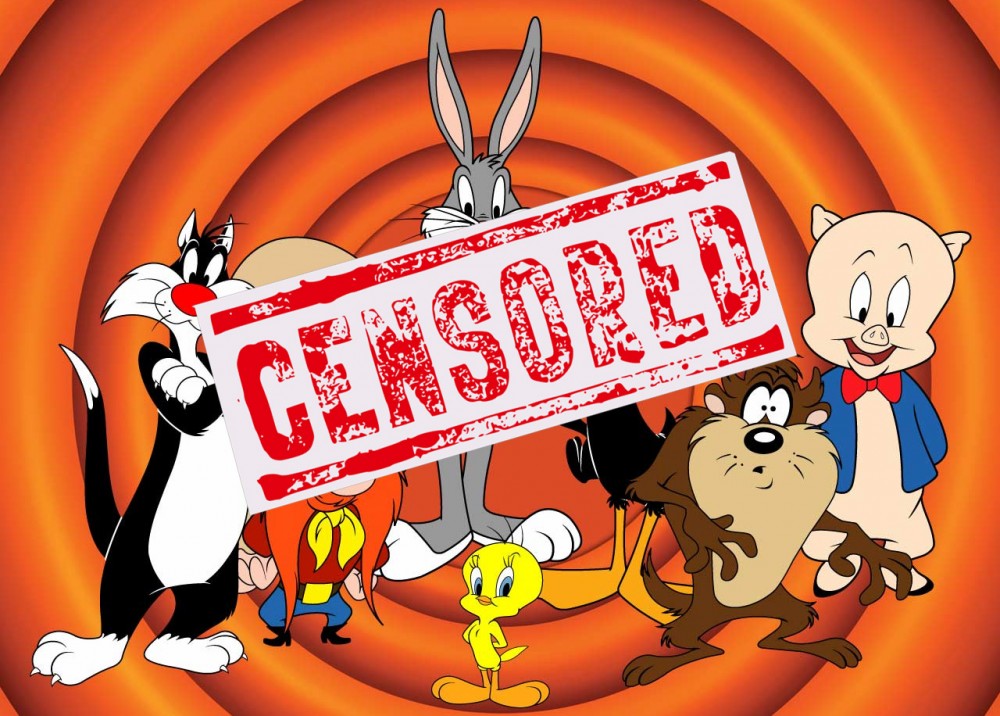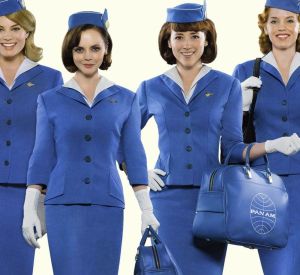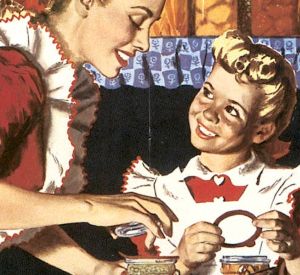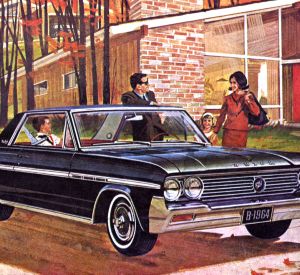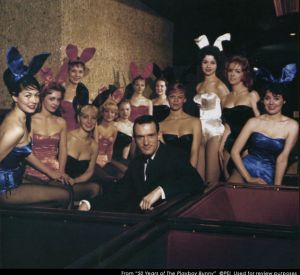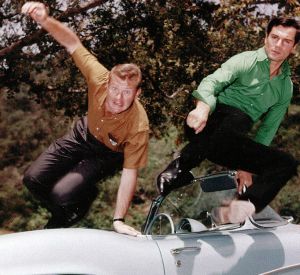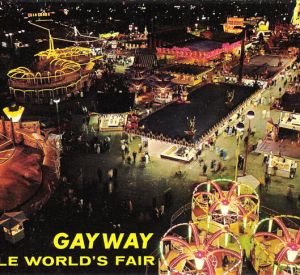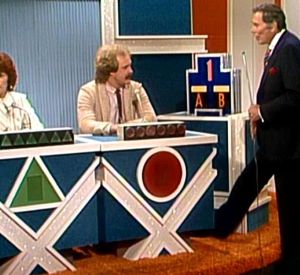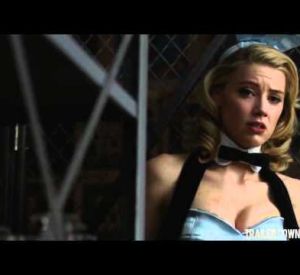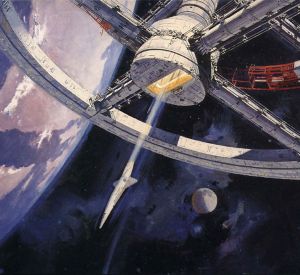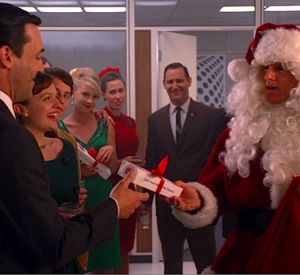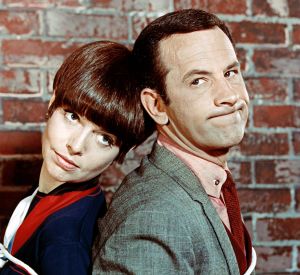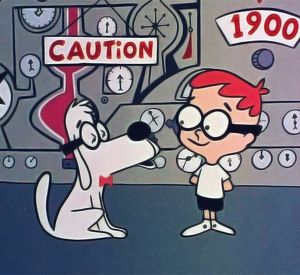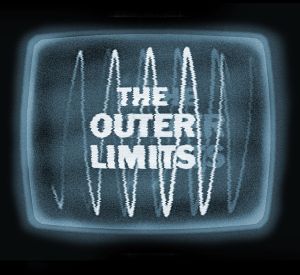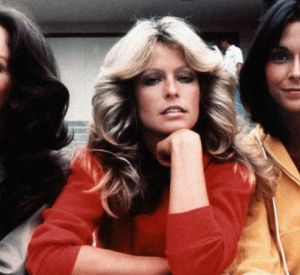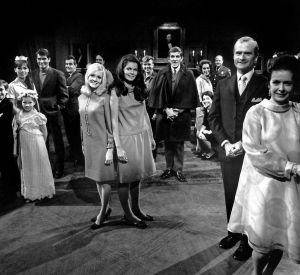Looney Tunes – Not Just Merrie Melodies
Watching a modern cartoon and then watching a vintage Looney Tunes cartoon is like eating dinner at burger stand in a town full of steak houses; there’s no comparison. In 1930 Warner Brothers Pictures released the first Looney Tunes cartoon. A decade later or so, Bugs Bunny and Daffy Duck are fighting the axis and playing on African-American racial stereotypes.
But let’s start from the beginning. The first Looney Tunes cartoons, aka shorts, were developed to compete with the burgeoning, music-tinged Walt Disney animation. In the 1940s the shorts were the intermission entertainment of feature films. At around seven minutes each, two shorts allowed enough time to grab a Coke and a slice. Other shorts were created to support the war effort and to boost moral for an America smothered in World War 2 correspondence.
My sister and I grew up in the 1970s. We were latchkey kids who walked home from elementary school, found the key under the mat and walked into an empty house. The television was our security. Before we did our daily chores, we grabbed a snack and watched the after school cartoon shows; all the shows aired Looney Tunes and Merrie Melodies; most programs lasted at least an hour. And on Friday nights we sat our alarms for Saturday mornings and we let mom sleep in.
After the all-important decision of either Cap’n Crunch or Super Sugar Crisp to go with our Quik, we sat on the couch, wrapped in blankets. With TV trays holding our meals of sugar and corn, we settled in for 90 minutes of the Bugs Bunny and Road Runner Show. We had no idea of the patriotic and cultural impact of the Looney Tunes and Merrie Melodies of yesteryear. We were unaware that they were films in their own right, that they were a product of their time and were celebrated in an era free of political correctness. All we knew was that they were fun. They made us happy.
Even the shorts that are now banned because of political incorrectness (a term coined by communist murderer, Mao Zedong), the cartoons gave us security and escape. We identified with the characters, Bugs Bunny and the rest; we didn’t know why we identified with them and it didn’t matter. They were our comfort on Saturday mornings when mom slumbered, and they were our security as latchkey kids when we came home and our only security was each other and the television.
Looney Tunes and their sister franchise, Merrie Melodies, were part of the Golden Age of Animation. They were mainstays in American theaters for thirty-nine years, became standard morning fare in millions of American households beginning in America’s Baby Boom era and are still revered on syndication television for their iconic imagery.
A list dubbed The Censored Eleven are a collection of shorts that Warner forbids network television from airing, but said that they would release them as part of special compilation sometime in 2011. Warner has yet to release the banned shorts.
The Censored Eleven can be found for sale from private sellers on the web and a few have entered the public domain. This writer views the shorts as a valuable historical resource; two are included here, Coal Black and the Sebben Dwarfs and All This and Rabbit Stew. (For educational purposes only. We do not condone racism at Ultra Swank).
https://www.youtube.com/watch?v=JViBSPCj2jI
Many of the shorts that contain offending material were made for the specific purpose of calling out the Axis Powers during World War 2. When America was called to support the allies in the Second World War, Bugs Bunny and the gang rallied the home-front with propaganda shorts that ignited patriotic fervor.
With shorts like Tokio Jokio, Herr meets Hare, Russian Rhapsody, Bugs Bunny Nips the Nips and Daffy – The Commando, American moviegoers were treated to a plethora of images that made a laughing stock of the Axis Powers and their leaders.
Even new enlistees were privy to the offending shorts via a character named Private SNAFU which was created by the writers at Warner’s studios at the request of Uncle Sam for the specific purpose of training new enlistees in basic military protocols. All of the shorts were classified material but are now accessible through sites like YouTube.
Still other shorts were banned because of violence: pianos dropped from a high-rise window, suicide (Ballot Box Bunny) and getting run over by cars, trains and steamrollers were regular occurrences.
More than a few shorts from Looney Tunes and Merrie Melodies contain provocative and questionable material. It is also important to keep in mind, however, that the material reflected the times when stereotyping was common.
Mel Blanc was an enormously talented voice actor who voiced all of the famous Looney Tunes and Merrie Melodies characters. He also voiced Barney Rubble among many other well known and loved characters. Mel actually deserves a piece reserved exclusively for him.
Here is Mr. Blanc in 1981 as a guest on the Late Show with David Letterman doing what he does best.
“Th..th… That’s All Folks!”
Written by Kyle Eidson


